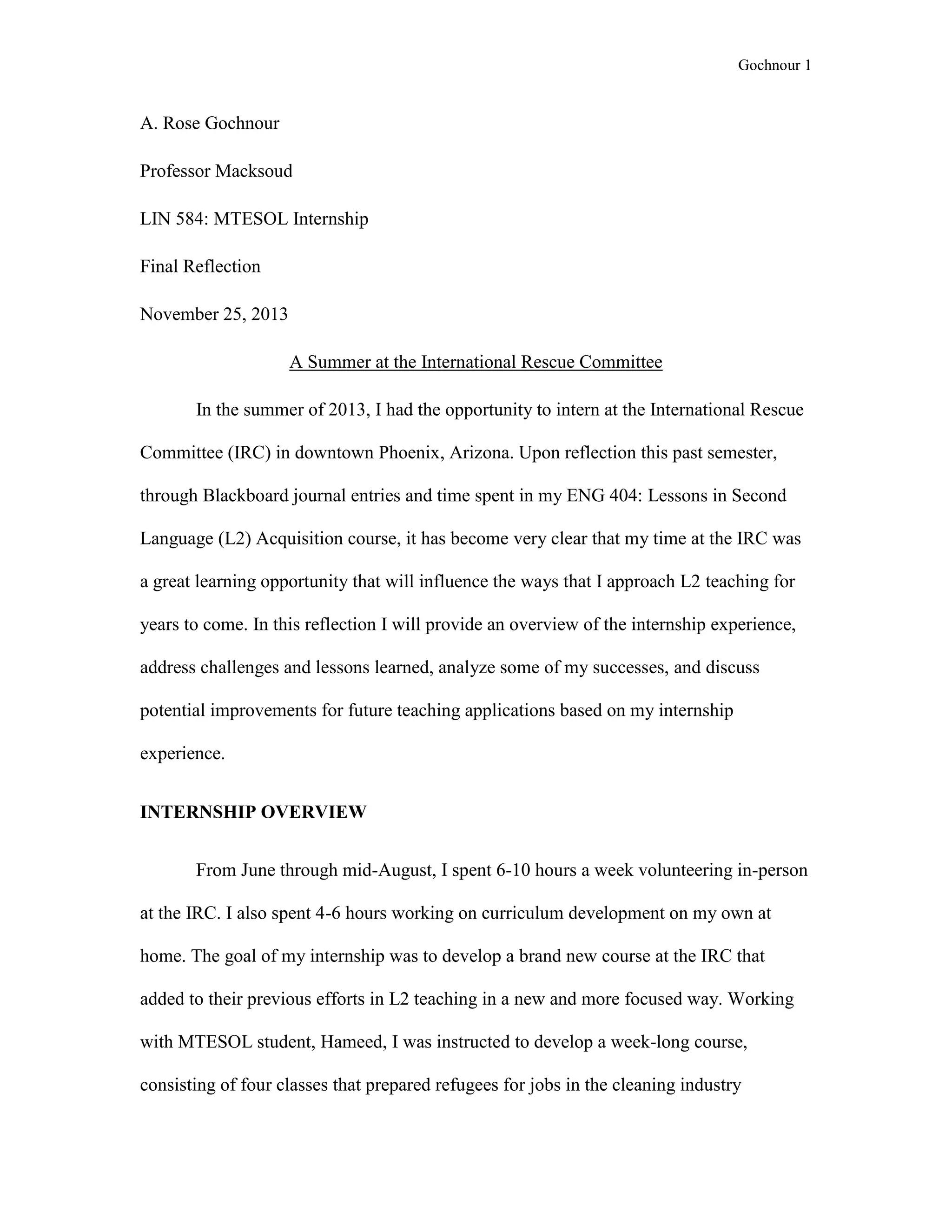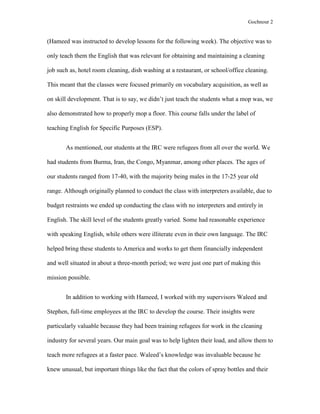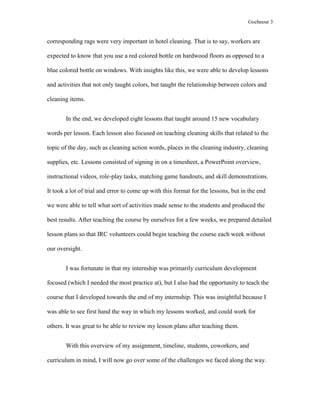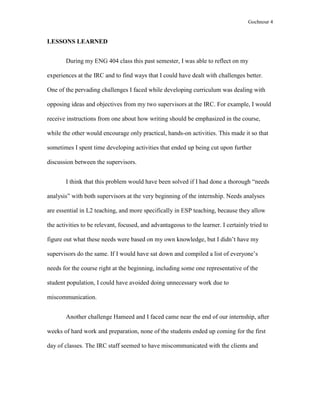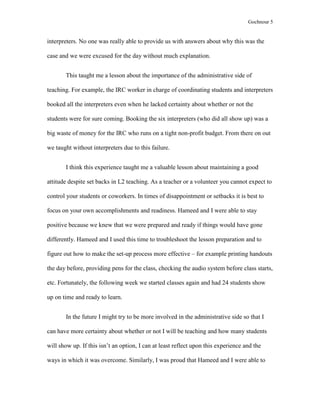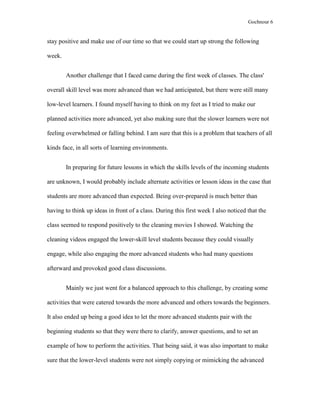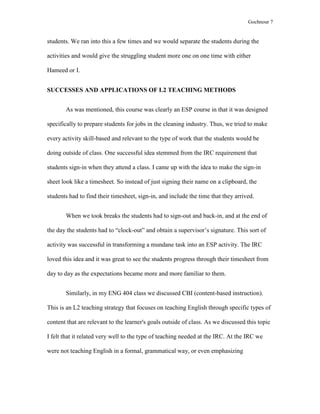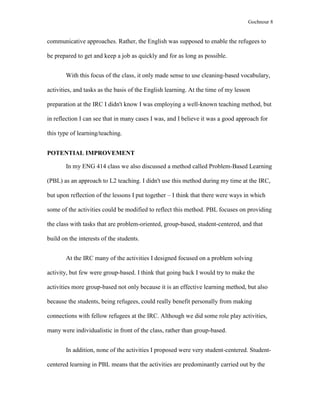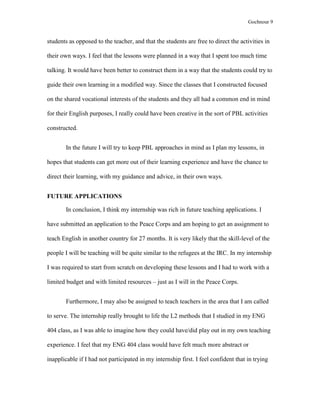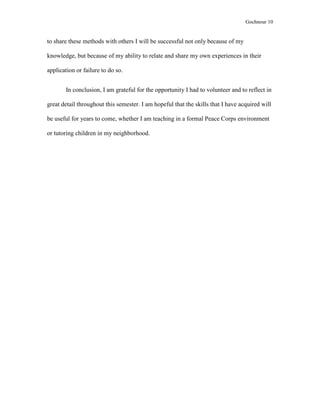1) The author completed an internship at the International Rescue Committee in Phoenix, Arizona where she developed an 8-lesson English curriculum focused on teaching refugees job-related vocabulary and skills for cleaning industry jobs.
2) Some challenges included differing opinions from supervisors, students not showing up for the first class, and varying English skill levels among students. The author learned about doing needs analyses, maintaining a positive attitude, and being over-prepared for varying skill levels.
3) Successes included making activities like timesheets realistic for job skills and using content-based instruction around cleaning topics. The author reflects on how to improve lessons using problem-based learning and making activities more student-centered and group-focused
